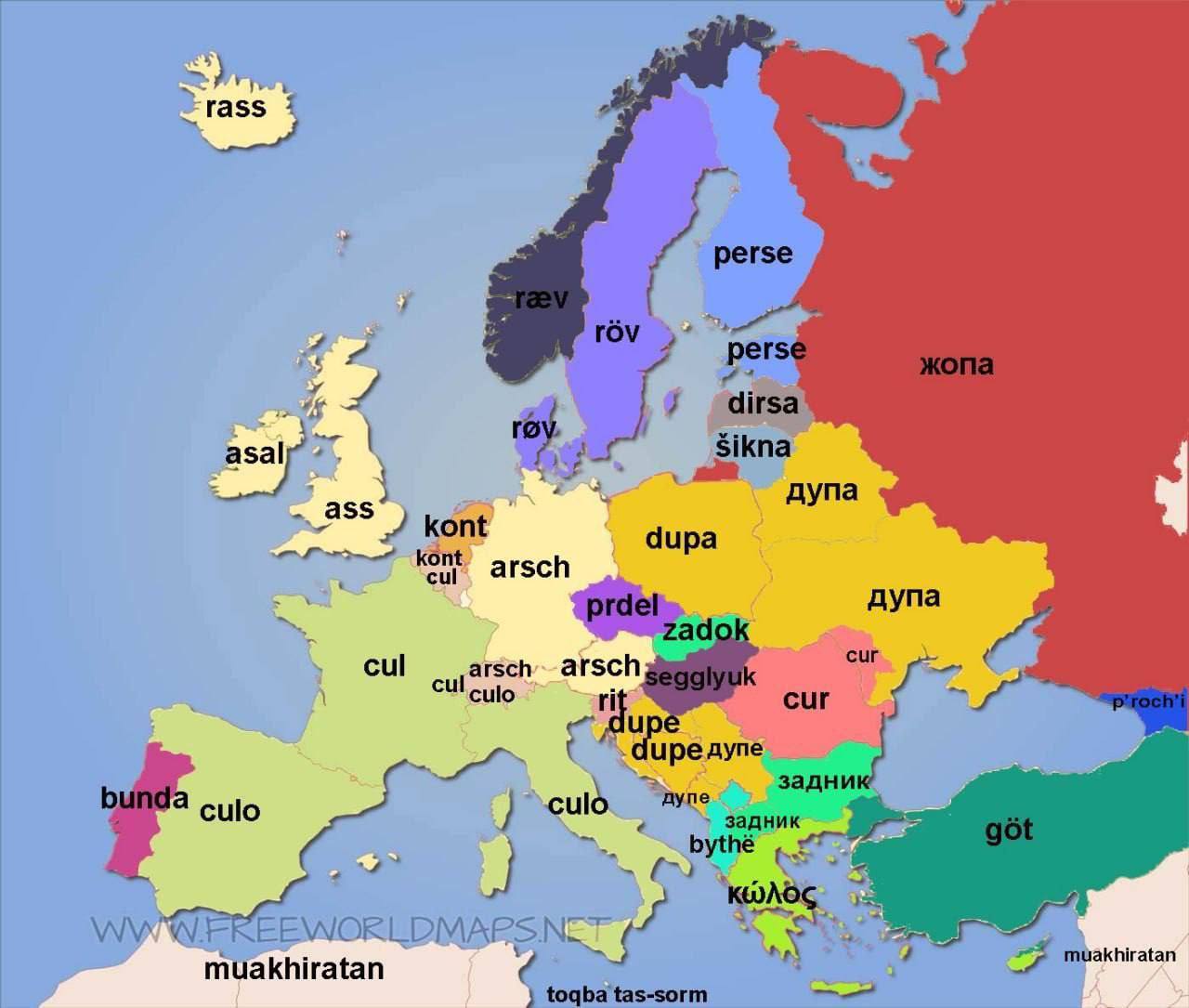this post was submitted on 10 Jan 2024
186 points (84.2% liked)
Memes
45734 readers
555 users here now
Rules:
- Be civil and nice.
- Try not to excessively repost, as a rule of thumb, wait at least 2 months to do it if you have to.
founded 5 years ago
MODERATORS
you are viewing a single comment's thread
view the rest of the comments
view the rest of the comments

Kont in Dutch - English's closest major relative - is very interesting.
Presumably it's cognate with cunt, which reminds me of the different meanings of fanny in UK/US English.
Also Finnish and Estonian both with perse - cool, they're both Uralic so that makes sense. And just below them dirsa seems so similar, despite Latvian being Indo-European. But then along comes their Uralic buddy Hungarian with the utterly dissimilar segglyuk.
Kont is also not the most used, nicest way of saying it. "Billen" is a better match.
I do blame the "why is it so different from English" on "Het Nederlands taalgenootschap", that was an organization that decided that a lot of Dutchified English would be changed to more Dutch terms. So is "Math" changed into "Wiskunde/Rekenen".
"Billen" is "buttocks", it's less vulgar than "kont" but it doesn't mean exactly the same thing. I think kont is also more socially acceptable with Flemish Dutch speakers than with Dutch speakers from the Netherlands.
Should also note that the word "aars" exists too. Given that they went with Arsch in German and Ass in English, it's a bit strange that they chose the word "kont" to represent Dutch.
Why shouldn't we use our own words to refer to things?
Also the word "wiskunde" wasn't made up by the organization you mention. It came from Simon Stevin, a Flemish 16th century mathematician.